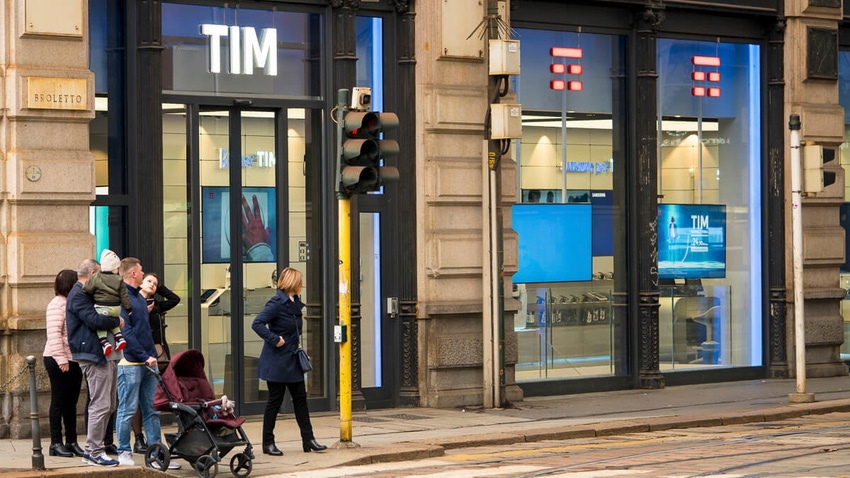TIM seeks balance as plan to offload fixed assets inches ahead
TIM CEO stresses importance of ensuring financial and industrial sustainability of the remaining ServiceCo, and highlights the more active role TIM could play in any market consolidation after a NetCo sale.

Telecom Italia (TIM) was keen to reassure the market that it is on course to offload its fixed assets as planned, although the operator made clear that any deal is dependent on ensuring the future sustainability of the service business that will remain, currently dubbed ServiceCo.
Speaking during the earnings call for the second quarter (Q2) of 2023, TIM CEO Pietro Labriola emphasized that "this will be an industrial deal. We are not putting in place a kind of sale and leaseback."
"What is important," he added, "is the value of the network, the leverage that we reach, but also the financial and industrial sustainability of ServiceCo."
Earlier this year, TIM's board of directors agreed to grant a period of exclusivity to US private equity firm KKR, which made a non-binding offer for the operator's fixed assets, currently known as NetCo.
According to the operator, a binding offer is still expected by September 30 at the latest, allowing the partners to complete negotiations on key aspects such as the Master Service Agreement (MSA) that will determine the future wholesale relationship between NetCo and ServiceCo.
TIM said a further nine to 12 months would then be required to obtain all corporate and regulatory approvals, as well as complete the carve-out of NetCo into a fully separate company. "We do not expect specific issues at the anti-trust level," Labriola said.
Previous reports have suggested that both Vivendi, which holds a 24% stake in TIM, and the government of Prime Minister Giorgia Meloni are less than enthusiastic about the deal.
Although he did not address these potential obstacles specifically, Labriola did make reference to media reports that indicated Italian entities (this could mean Italian state-backed lender CDP, for example) could be invited to participate in the KKR deal.
Labriola noted that this would at least ease the so-called "golden powers" process that Italy's government uses to shield companies deemed of strategic importance. He added that TIM has plenty of practice here as it dealt with similar issues when completing the agreement that saw KKR Infrastructure acquire a 37.5% in the FiberCop unit.
As of June 30, NetCo managed about 15.8 million fixed accesses. The fiber-to-the-home (FTTH) network passed 8.2 million "technical units," with coverage increasing six percentage points in a year to 34%.
Ready for action
Notably, Labriola said the sale of NetCo would allow TIM to play an active rather than a passive role in the event of any market consolidation, which is something he clearly favors in view of the highly competitive consumer market.
"If you look at the numbers that were just released by some of my competitors, I think that … no one can be satisfied [with] this market environment," he said, noting that the market is overcrowded while rules governing the sector also need to be changed.
"To be active … we have to sell the network. Because if we don't sell the network, it will be difficult to be active … due to some anti-trust constraints," he said.
In terms of its performance in the second quarter and first half of 2023, TIM appeared fairly bullish, noting that results are fully in line with its full-year targets.
In Q2, group total revenue increased 2.8% to €4 billion (US$4.37 billion), while group EBITDA increased 5.6% to €1.6 billion ($1.75 billion). Net financial debt at June 30, 2023 came to €26.2 billion ($28.64 billion), up €0.8 billion ($0.87 billion) compared to the end of 2022. TIM noted that its domestic business stabilized in the quarter, with revenue up for the first time in 20 quarters and EBITDA rising 0.5%.
TIM Brasil reported a 9.5% increase in quarterly service revenue, while EBITDA was 17.3% higher. TIM Enterprise achieved more muted revenue growth of 1.1%, blamed on a 6% decline in traditional connectivity, while IoT services also fell 4%. Cloud sales were up by 13%, however.
Related posts:
— Anne Morris, contributing editor, special to Light Reading
Read more about:
EuropeAbout the Author(s)
You May Also Like











